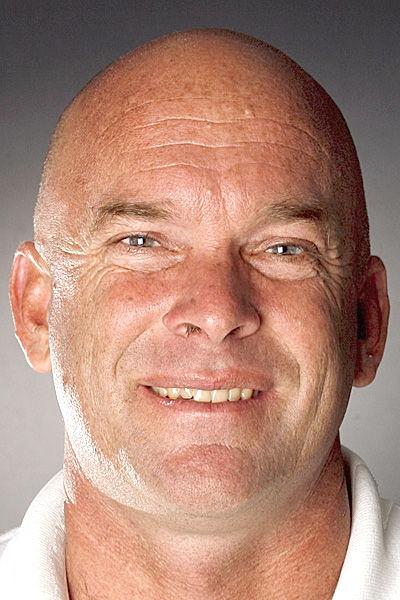I noticed, as if from a distance, that my hands trembled slightly as I fitted the airway device into the man’s mouth. Once it was in, I repositioned his head, tilting it slightly back, and tried again to get oxygen into his lungs. This time his chest rose. As my partner did a round of compressions, I waited for my turn to ventilate again.
West Beach was crazy back then. Once the traffic piled up and the beach filled, there was no backup by land.
As I waited, I panned the area quickly. We were surrounded by hundreds of people who were yelling insults, threats or encouragement. It smelled like a sickly mix of sweat, sunscreen, seaweed and beer.
We were ringed with a small group of cops that barely held the crowd at bay. Nearby, another group of lifeguards, firefighters and helpful bystanders carved an area out of the crowded beach big enough to land a helicopter in.
EMS Supervisor Tommy Leigh found his way in there somehow by entering down the beach and driving his ambulance down the surf line into the maelstrom. He waded through the crowd as if taking a Sunday stroll. He smiled and said something just smart-alecky enough to relax us. He knew all the first responders by name as he joked, instructed and calmed.
Within a couple of minutes, we had a line in the victim, had shocked his heart into a regular rhythm and Tommy had quickly and efficiently intubated him. While this was going on, he somehow also redirected the landing zone to account for wind direction, so cars weren’t sandblasted, had us humming like a well-oiled rescue machine and had a plan for moving the body safely to the helicopter without the crowd jumping on top of us.
He was supportive and calm while maintaining complete situational awareness.
As the helicopter lifted off, he came up to me and clapped me on the shoulder saying, “Not a bad medical response … for a lifeguard.”
Tommy was part of an amazing team that worked EMS in the ‘80s and ‘90s that was so inclusive and proactive it had an impact that resonates to this day. They helped beach patrol into the formal prehospital care chain and are largely responsible for us having EMTs in every truck and being registered as a “first responder organization” with the health district.
They were getting hammered with minor beach calls and we took a lot of the burden from them, while stepping up our medical response game considerably. Now we respond to almost 2,000 medical calls a year that fire or EMS doesn’t have to deal with at all. For more than three decades, Tommy was there with advice, training, encouragement and, most importantly, friendship.
Thirty-five years later, on the night of July 23, I sat across from Tommy at his retirement party, trading stories and having a beer. After saving thousands of lives and mentoring many of us, he’s finally getting a well-earned “rest” that will involve all kinds of national and international travel.
Thank you, Tommy Leigh!
Peter Davis is chief of the Galveston Island Beach Patrol. The views in this column are Davis’ and do not necessarily represent those of the Beach Patrol, Galveston Park Board of Trustees or any other entity.

